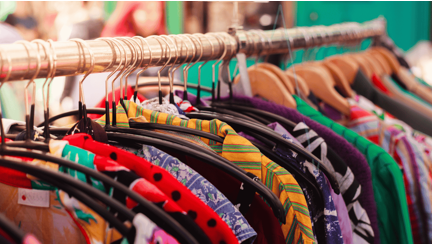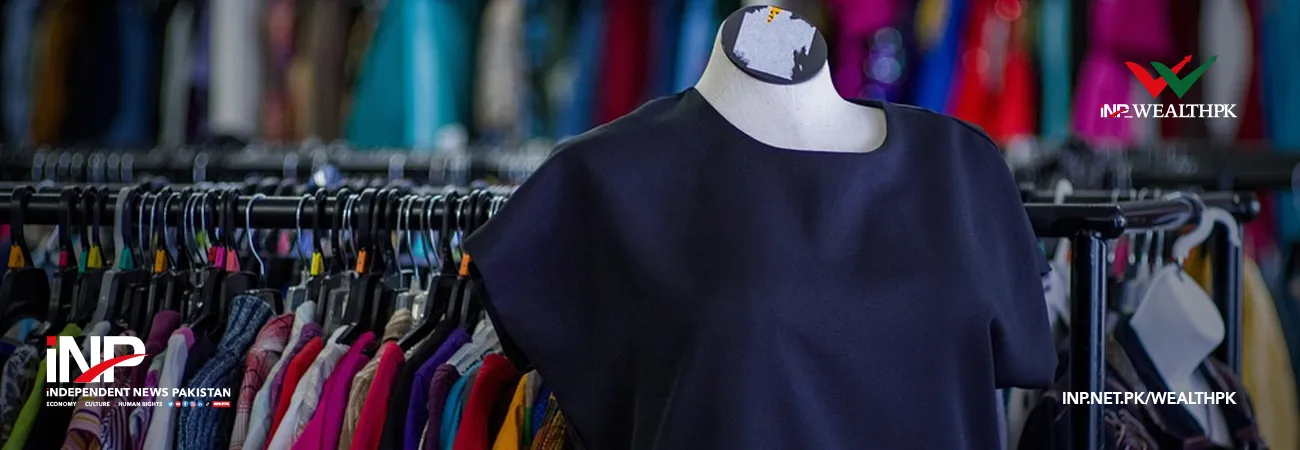INP-WealthPk
Muhammad Saleem
Inflation has severely impacted the clothing industry not only in Faisalabad but also across the entire country, resulting in limited profits for the millers, wholesalers and retailers, reports WealthPK.

Nadeem Lodhi, a wholesaler of ladies’ fabric, was expecting a robust business season ahead of Eidul Fitr, but the situation turned out quite differently. He told WealthPK, “For decades, people have been investing in the clothing sector, which has traditionally brought in good profits. However, this year, the millers, investors and retailers have not been able to earn substantial profits.
“If we sold 100 suits last year, the number has dropped to 50 this year. The price of a trendy suit, which was Rs2500 last year, is now Rs3800. The price hike has forced the middle and lower segment of the society to avoid buying expensive suits,” he said. “We tried manufacturing different styles of ladies’ suits, keeping in mind the price-hike and the buying capacity of the masses, but to no avail.
Despite all our efforts, we could not achieve the desired results. The prices of energy and raw materials, such as cotton and fabric, have reduced our profits. To avoid losses, the manufacturers have increased the prices to cover the additional expenses.” However, Qasim Ali, a retailer, offered a contrasting perspective. He said people exaggerate when they claim they suffered losses this season.
The majority of people have had a good business season this year, but it was far better last year, he said. He pointed out that a growing number of consumers living away from the markets prefer to place orders online. “I know many people running online stores, who have done well. The trend of online shopping is thriving,” he added.
While he acknowledged the impact of inflation on fabric prices and consumer behavior, he argued that it's not true that the clothing industry is in turmoil because of inflation. Nadeem Lodhi noted that the elite class responded well this year, purchasing even expensive suits. However, the majority of society preferred to stay away from buying designer suits. “I observed that many families purchased replica suits to celebrate Eid due to inflation.
The situation in the men’s clothing industry was worse compared to the ladies’ clothing. Men preferred to purchase clothes for their children and women rather than buying suits for themselves,” he said. Zia Ahmed, an industrialist, said the demand for cheaper and low-quality garments surged with each passing day, creating new challenges for the manufacturers who remain committed to quality.
“I can’t go against the wishes of my buyers. That's why many manufacturers like me are compelled to produce low-quality products in response to the market demand.” He said quality clothing was becoming unaffordable for the average consumer in Pakistan. Due to inflation, the demand for high-end fashion has also declined, as people prefer necessities. The middle class, in particular, has been hit hard this time and struggled to buy the same quantity of clothes they used to purchase.
Credit: INP-WealthPk






